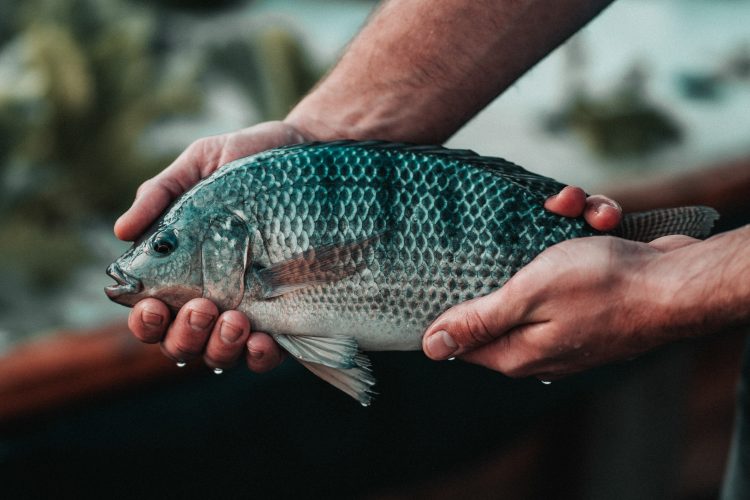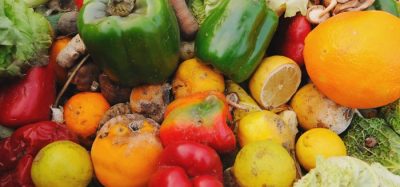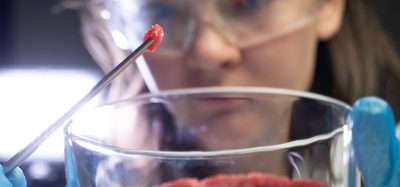Fish genome has potential to improve food security
- Like
- Digg
- Del
- Tumblr
- VKontakte
- Buffer
- Love This
- Odnoklassniki
- Meneame
- Blogger
- Amazon
- Yahoo Mail
- Gmail
- AOL
- Newsvine
- HackerNews
- Evernote
- MySpace
- Mail.ru
- Viadeo
- Line
- Comments
- Yummly
- SMS
- Viber
- Telegram
- Subscribe
- Skype
- Facebook Messenger
- Kakao
- LiveJournal
- Yammer
- Edgar
- Fintel
- Mix
- Instapaper
- Copy Link
Posted: 6 February 2023 | Grace Galler | No comments yet
Researchers say they have found the “first full, high quality” reference genome for a genetically improved tilapia strain.


Researchers at the the Earlham Institute, the Roslin Institute, and WorldFish have claimed to have discovered the first full, high-quality reference genome for a genetically improved tilapia strain that they say has the potential to improve food security around the world.
Hoping that the findings will be used as a resource for fish breeders, the researchers have said that their discovery can develop strains that “grow bigger, grow quickly, and have improved resilience to the environmental challenges of a warming planet”.
Additionally, the Earlham Institute has said that the findings reveal a “substantial and unique” genetic variation in farmed strains of tilapia and has said that there is a need to use this strain-specific resource to inform future breeding programmes.
According to The World Counts, nearly 80 percent of the world’s fisheries are already fully exploited, over-exploited, depleted, or in a state of collapse.
The researchers have claimed that, for billions of people worldwide, protein from fish and shellfish is “no mere luxury”, instead, it is an “essential source of protein and other nutrients”, thus suggesting that a solution is needed to exploited fisheries.
Looking specifically at tilapia, global production reportedly topped six million tonnes for the first time in 2020, a year where it grew by 3.3 percent. What’s more, the researchers have said that the Nile tilapia (Oreochromis niloticus) is now the third most farmed species of fish in the world.
The Genetically Improved Farmed Tilapia (GIFT) programme, supported by the research institution WorldFish (CGIAR), claims to have given rise to one of the elite strains found today and distributed worldwide. However, this was previously achieved through selective breeding without a complete reference genome.
“A reference genome provides a full, annotated catalogue of all the genes in an organism. This crucial resource is the basis for modern breeding programmes,” said Dr Wilfried Haerty, study author and Group Leader at the Earlham Institute.
“WorldFish, who are leading on further developments of GIFT, can now use the reference genome as the baseline to work from when looking to breed beneficial traits.”
In order to generate a “near complete and high-quality” reference genome, WorldFish provided tissues to Earlham Institute researchers, who then used a combination of short and long-read sequencing techniques to create a chromosome level genome assembly for GIFT. The genome was then annotated, using an approach developed by the Swarbreck Group at the Earlham Institute.
“This collaboration has laid a strong foundation for us to produce new strains of GIFT that are more resilient to a changing climate, reducing production risks for fish farmers and increasing yield to feed nutritious animal protein to a growing global population,” commented Dr John Benzie, WorldFish Acting Director of Aquatic Foods Biosciences.
“We’ve generated a chromosome level assembly of the GIFT strain characterising its mixed origins and the potential contributions of introgressed regions to selected traits. This gives breeders the information they need to develop new programmes with confidence,” explained Haerty.
Looking to what the findings could mean for future of global food security, Dr Diego Robledo, study author at the Roslin Institute, said: “The insights offered by development of the entire genome of this key fish species will enable research towards ensuring sustainably produced supplies, to support a healthy source of nutrition for growing populations.”
Related topics
Data & Automation, Food Security, Quality analysis & quality control (QA/QC), Research & development, Supply chain, Technology & Innovation, The consumer, Trade & Economy, World Food
Related organisations
Roslin Institute, The Earlham Institute, The World Counts, WorldFish








